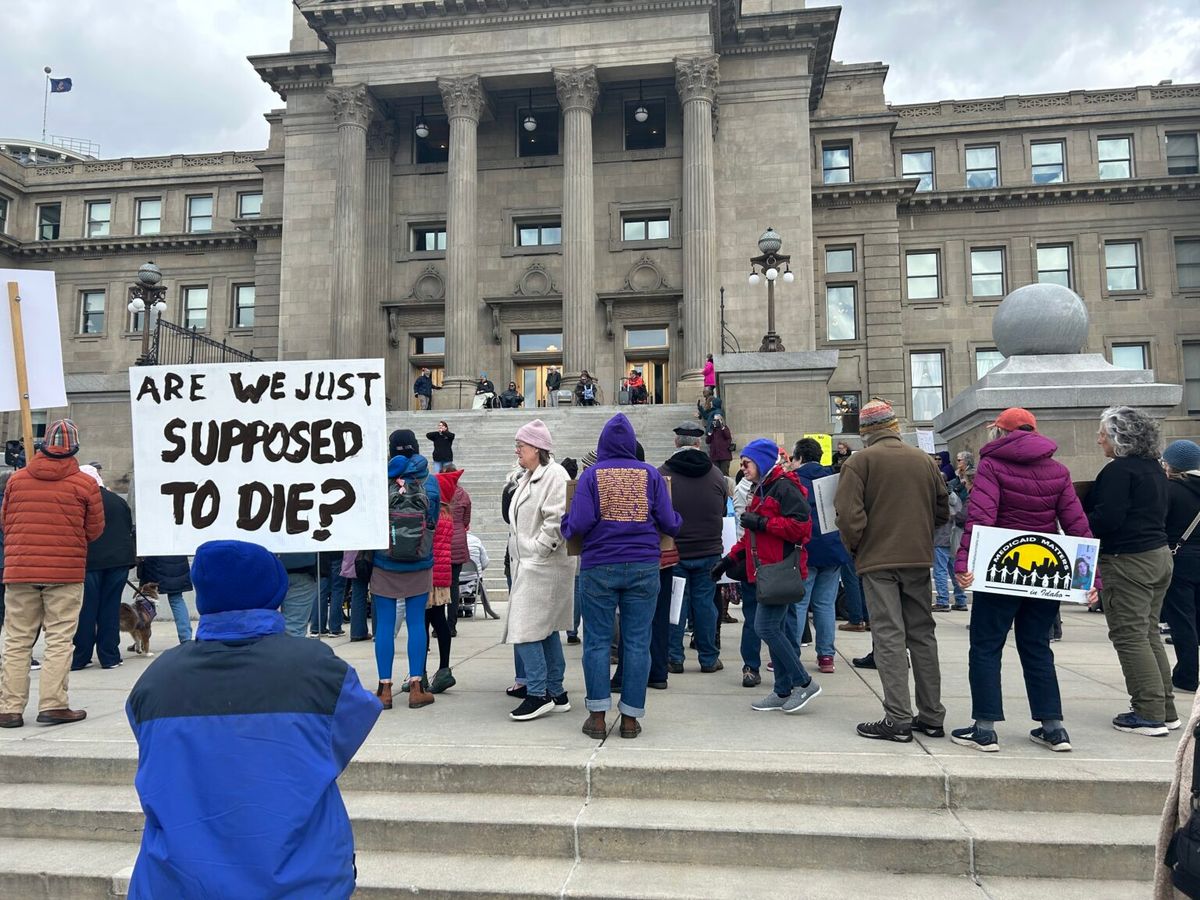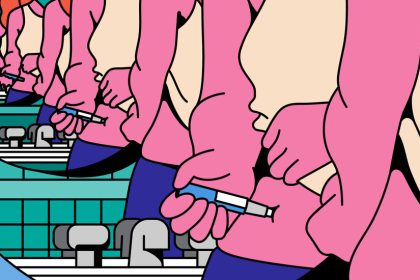Bob McMichael and his wife currently benefit from a significantly subsidized health insurance premium, paying only $50 per month thanks to enhanced tax credits introduced by Congress in 2021. Recently, however, they received a distressing notice from their insurer indicating that their premiums would surge to $400 a month, even with the existing tax credits. Without those credits, their premium could exceed $2,200, an amount nearly equivalent to their total monthly income as a retired school teacher in Council, Idaho.
“If we spent that much on health care — which we won’t be able to do — we wouldn’t be able to buy groceries, or gas, or pay our utility bills, or anything else,” McMichael lamented in an interview with the Idaho Capital Sun.
The future of enhanced premium tax credits is uncertain, as they are set to expire at the year’s end unless Congress acts to extend them. Without these credits, it is estimated that around 25,000 residents in Idaho may be forced to forfeit their insurance policies, with average premiums expected to double, according to Pat Kelly, the executive director of Your Health Idaho.
The recent federal government shutdown stemmed from ongoing partisan disputes over health policy issues. While Republicans, who currently control the White House and both houses of Congress, blame Democrats for the government impasse, Congressional Democrats argue for the renewal of health insurance tax credits and the elimination of Medicaid cuts as essential parts of their funding proposal.
Polling data from the health policy research group KFF indicates a strong bipartisan consensus, with over 78% of Americans advocating for the renewal of the enhanced credits. Notably, even 59% of Republicans express support for the extension.
According to Ivy Walker, a policy associate at Idaho Supports Medicaid, failing to renew the tax credits would lead to a significant increase in the number of uninsured individuals in Idaho. This, she asserts, would trigger a chain reaction that could overwhelm the health care system, compelling hospitals to handle more uncompensated care. Subsequently, private insurers may increase premiums for remaining policyholders.
“This is all going to feed into a very vicious cycle. And families are going to essentially have to choose between getting health care or feeding their families or paying rent,” Walker noted.
The enhanced premium tax credits limit health insurance expenditures to no more than 8.5% of an individual’s income for benchmark plans. These credits apply exclusively to plans purchased through the federal marketplace established by the Affordable Care Act and state-based exchanges like Your Health Idaho. In Idaho, the enhanced tax credits have resulted in average monthly premium reductions of over $400, transforming a typical payment of $636 to just $179, Walker explained.
The American Rescue Plan Act introduced these enhanced credits in 2021, and they were extended by the Inflation Reduction Act in 2022, both signed into law by former President Joe Biden. The Congressional Budget Office estimates that making the credits permanent would cost approximately $350 billion over the next decade and could provide health insurance to an additional 3.8 million people.
The federal shutdown was triggered as lawmakers scrambled to draft a temporary funding bill to avert a government closure while neglecting to address the full budget for the upcoming year. Many Democrats objected to the Republicans’ plan, citing the need to extend the enhanced credits and reverse certain Medicaid cuts. U.S. House Speaker Mike Johnson expressed that discussions about renewing the tax credits could be postponed until December, but the open enrollment period for health insurance begins on November 1 and concludes on December 15.
Walker cautioned that delaying action until December would be inadequate for families facing upcoming enrollment needs. The positions of Idaho’s congressional delegation, all of whom are Republicans, appear divided. U.S. Rep. Mike Simpson has voiced opposition to the extension of the enhanced credits. His spokesperson labeled the situation a distraction from the Democrats. Meanwhile, a spokesperson for U.S. Sen. Mike Crapo stated that he is open to bipartisan discussions on lowering health care costs once the government reopens. U.S. Sen. Jim Risch attributed the expiration of the enhanced credits to legislative decisions made by Democrats during the Biden administration, stating that they had opportunities to transform these provisions into a permanent entitlement.
Idaho’s Democratic Party Chairperson Lauren Necochea emphasized the urgency of the situation, arguing that the impending health care cost increases would have dire consequences for many American families. “Huge health care price hikes are being shoved down the throats of the American people, and Democrats are saying, ‘We’re not going to be part of this. We’re going to fight this,’” she asserted.
The impending expiration of the enhanced tax credits, combined with multiple Medicaid cuts, raises serious concerns about the accessibility of health care in Idaho. Walker warned that even those with insurance might struggle to find appropriate care amid the looming health crisis.
Amid this uncertainty, the open enrollment period for Idaho’s health insurance exchange, Your Health Idaho, is approaching, running from October 15 to December 15. Kelly emphasized the importance of working with insurance agents or brokers given the significant changes expected.
For McMichael, the uncertainty surrounding his health care options casts a shadow over his retirement. As he awaits the open enrollment period to explore potential plans, he recognizes that many others share a similar plight. “Like the tens of millions of other people in our situation … we will not have health care. And if one of us gets really sick, then the options are pretty bleak,” he shared, reflecting the anxieties faced by many Idahoans. McMichael and his wife have been fortunate in their health thus far, but he admits that rising costs are making access to necessary care increasingly difficult.
“I just kind of live with pain. Because trying to get a treatment plan and all the other hoops you have to jump through, like an MRI and physical therapy, is just — even with the health plan that we have, the out-of-pocket costs are too much,” he concluded.






